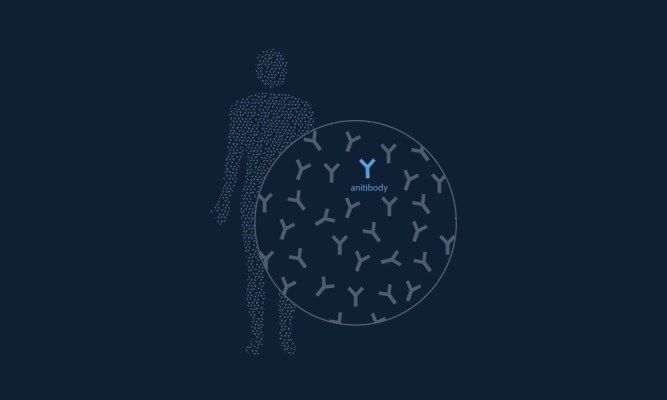
Immune intelligence startup Serimmune hopes to better understand the relationship between antibody epitopes (the parts of antigen molecules that bind to antibodies) and the SARS-CoV-2 virus.
The company’s proprietary technology, originally developed at UC Santa Barbara, provides a new and specific way of mapping the entire array of an individual’s antibodies through a small blood sample. They do this through the use of a bacterial peptide display — a sort of screening mechanism that can isolate plasmid DNA from antibody-bound bacteria in the sample. This DNA can then be sequenced to identify epitopes, which provide information about which antigens someone may have been exposed to, as well as how their immune system responded to them.
“It’s a very highly multiplexed and exquisitely specific way of looking at the epitopes found by antibodies in a specimen,” said Serimmune CEO Noah Nasser, who has a degree in molecular biology from UC San Diego and has previously worked for several diagnostics companies.
This week, Serimmune announced the launch of a new application of their core technology to help understand the disease states of and immune responses to SARS-CoV-2, the virus that causes COVID-19.
“So what we do is we take these antibody profiles we build, and we’re able to then map those back with about a 12 amino acid specificity to the SARS-CoV-2 proteome,” said Nasser. “And what we find is that antibody expression is highly correlated to disease state, so we can distinguish mild, moderate, severe and asymptomatic disease on the basis of antibodies that are present in the specimen.”
The more patient data Serimmune can collect, the better its core technology becomes at finding patterns across different antigen exposure and disease severity. Noticing those patterns sooner won’t only help physicians and researchers to better understand how the SARS-CoV-2 virus operates, but can also inform new approaches to diagnostics, treatments and vaccines for any antigen.
Serimmune’s launch of its new COVID antibody epitope mapping service is a way of making this data more accessible to customers like vaccine companies, government agencies and academic labs that have shown interest in better understanding the immune response to SARS-CoV-2.
“The key was to zero in on the information that researchers wanted to know and standardize that,” said Nasser. “We can actually now provide these results back in as few as two days from sample receipt.”
Beyond this new service, Serimmune also has plans to launch a longitudinal clinical study on immunity to SARS-CoV-2. Using a painless at-home collection kit, study participants send in small blood samples to Serimmune, which then uses its core technology to outline an individual immunity map.
“We provide their results back to them in the form of a personal immune landscape to COVID,” said Nasser. “And what we’re trying to do is to understand over time how that immune response changes, and what happens to that immune response on repeated exposure to COVID.”
The mapping technology is now so specific that it can tell whether a patient has antibodies from natural exposure to the SARS-CoV-2 virus or from a vaccine, he added.
While the primary focus for Serimmune remains these applications to the COVID-19 pandemic for now, Nasser also mentioned that the company has plans to move into personalized medicine, potentially offering their mapping service directly to interested patients.
“We believe that this has value to individual patients in understanding their immune status and what antigens they’ve been exposed to,” he said. Until then, Serimmune plans to continue growing its database with more patient samples.



